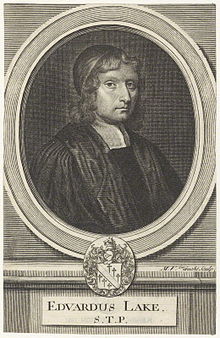
Knowledge is as necessary as practice in religion, yea even in the Christian religion. Which I will evince from these three propositions:
1. Knowledge is a necessary ingredient or part of Christianity, and consequently unless divine principles and truths be taught us, which are the true matter of our knowledge, our Christianity is imperfect. There wants a main and essential part of it, such a part as is absolutely requisite to make the other parts useful. For this is certain, that the practical parts of Christianity will be wholly insignificant, if they be separated from this. The reason is plain, because fearing and loving of God and keeping his commandments, are duties that can’t be practised aright without a due knowledge. Therefore a preacher must make his people knowing in religion. This is not his trade, as some reproachfully term it, but it is that which the nature of his high calling and office requires of him. For truth is a talent committed to us, and we are the trustees of this precious depositum. All our hearers have a right to share in this sacred treasure, and we must with faithfulness impart it to them. We must beware of imaginary draughts of Christianity, of false schemes of the Gospel, of which there are sundry extant at this day. These we must carefully avoid, and be very frequent in insisting on the fundamental articles of our faith, because our religion consists in true principles as well as right practice.
2. We ought to be very solicitous and careful in this matter, because, if our knowledge and our principles be corrupted, our practice will be so too. It cannot be otherwise, because the former have so great and so immediate an influence on the latter. Knowledge and belief are the foundations of Christianity, and a Christian life is the superstructure that is erected on them: whence it follows that he who supplants the Christian truth, undermines the life of religion, and effectually subverts its morals. By overturning the faith he destroys the practical part of Christianity, And truly on some accounts the corruption of the Christian doctrines, and error in judgment are worse than in manners, for the depraving of the understanding, the leading faculty of the soul, is in some respects more dangerous than a debauching of the will, I mean as to some particular instances. Yea, ‘tis certain that even an indifferency about the principal truths of religion is of pernicious consequence, as every day’s experience informs us, for from this cold and indifferent temper many slip into atheism and all manner of irreligion and immorality. Wherefore there is a necessity of our being right in our opinions as to religious matters.
3. Knowledge of divine truths is a necessary condition of our happiness, and on that account (as well as the others before-mentioned) the preacher is obliged to instruct and inform men’s minds about the doctrinal part of religion. We must know then that our religion and our happiness answer to one another. As we cannot be said to be religious without understanding and knowledge, so neither can we be happy without them, for they are necessary ingredients of both. Which will easily be granted by those who have a true notion of happiness, which consists in the perfecting our understandings, as well as our wills and actions. Which confutes that prevailing opinion before-mentioned, that men of all persuasions and sects may be saved, which cannot be true if a right knowledge be necessary to happiness. And this is the profess’d doctrine of our Church [i.e. the Church of England] in her eighteenth article. Besides, it is required of us in order to our future blessedness, that we make open profession of our faith, with the mouth confession is made unto salvation, saith the Apostle in Rom. 10:10, and certainly this implies that we are bound to know the articles of our faith, and the doctrines and truths of our most holy religion. And this implies without doubt that we are to explain these to the people, and to study to remove from them all ignorance of the necessary points of religion, and to help them to a true and right understanding of all the fundamental and essential doctrines of Christianity. Our place and function exact this of us [as preachers], and we should be unfaithful to men’s souls if we should neglect this.
In brief, we must instruct the people in the sacred truths of the Gospel, and the whole body of its principles, or else we cannot lay claim to that character of being good ministers of Jesus Christ, nourished up in the words of faith and good doctrine, that is well acquainted with and imparting unto others the knowledge of the principles of Christianity.
– John Edwards (1637-1716), The Preacher, 1:50-53.
For more on this theme, see this series of three years ago from the later Jonathan Edwards (1703-1758) on why all Christians must endeavour to become proficient in theology.


